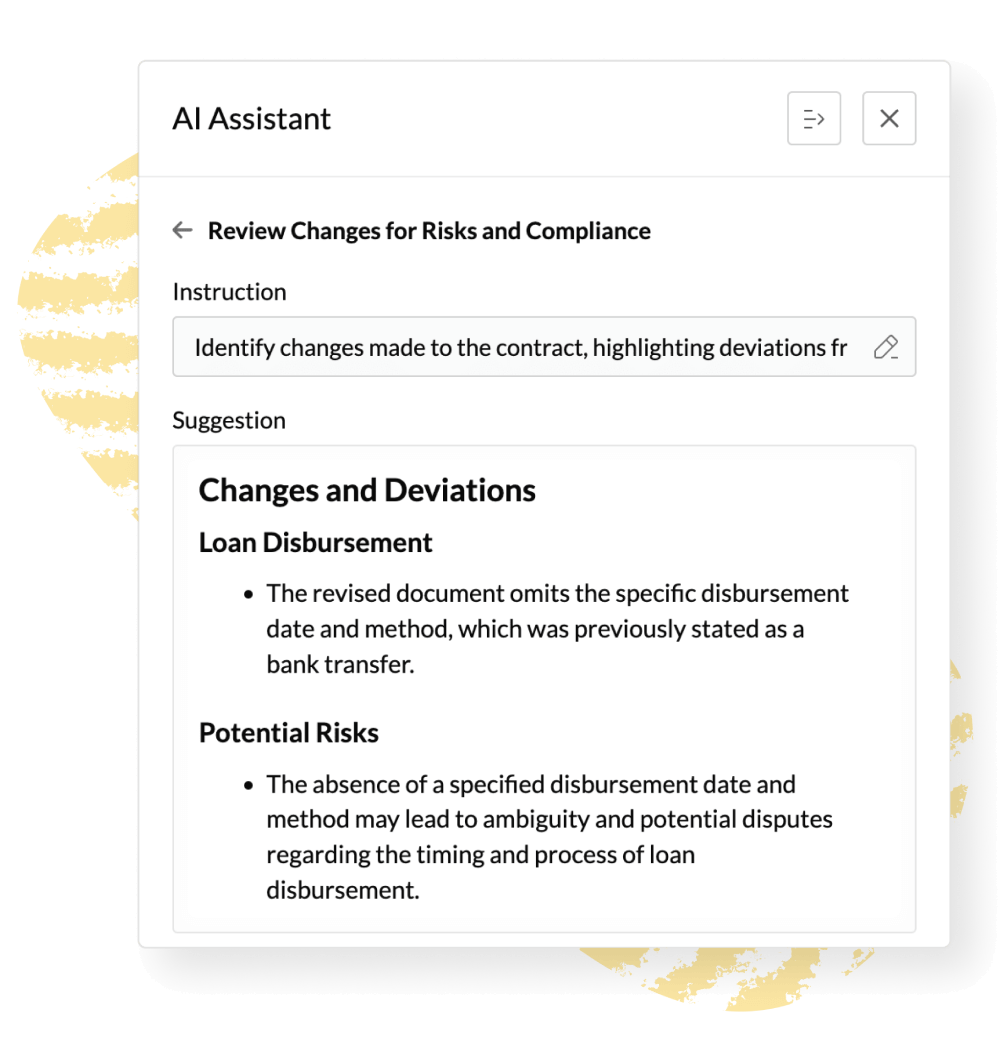Challenges in conventional negotiation methods
Traditionally, businesses negotiate contracts by sending contract documents as email attachments back and forth. When there are multiple rounds of negotiations, tracking changes and version control becomes tedious, and the chances of human errors are high. Though modern word processors enable real-time collaboration and version control, in the absence of a holistic contract lifecycle management (CLM) system, businesses miss out on the valuable insights that could be gleaned from all their negotiations.
With the fast-growing emphasis on compliance across all industries, not having granular control over every aspect of your contract lifecycle and the inability to log each activity with a timestamp within a single central system exposes businesses to numerous risks. Implementing a contract lifecycle management (CLM) solution will address all the above challenges, saving your legal team a significant amount of time and effort and improving compliance.
Benefits of using a CLM for negotiation

- Secured access to counterparties
- Granular control over your contract
- Effortless collaboration among
counterparty negotiators - Improved version management
- Ability to compare negotiation cycles
- Analytical insights from negotiation patterns
- Faster negotiation cycles
Negotiation in Zoho Contracts
Controlled access
Zoho Contracts enables businesses to send contracts for negotiation using password-protected links. You can decide how to share the password for your contract document with negotiators. Either set a password and share it offline, or send it directly via email. The contract's critical information is secured so that only the authorized counterparty negotiator(s) can access it. The counterparty's primary contact can submit the review. The contract owner can choose the suitable access permission for the other negotiators from the following permissions: edit, comment only, or view only.
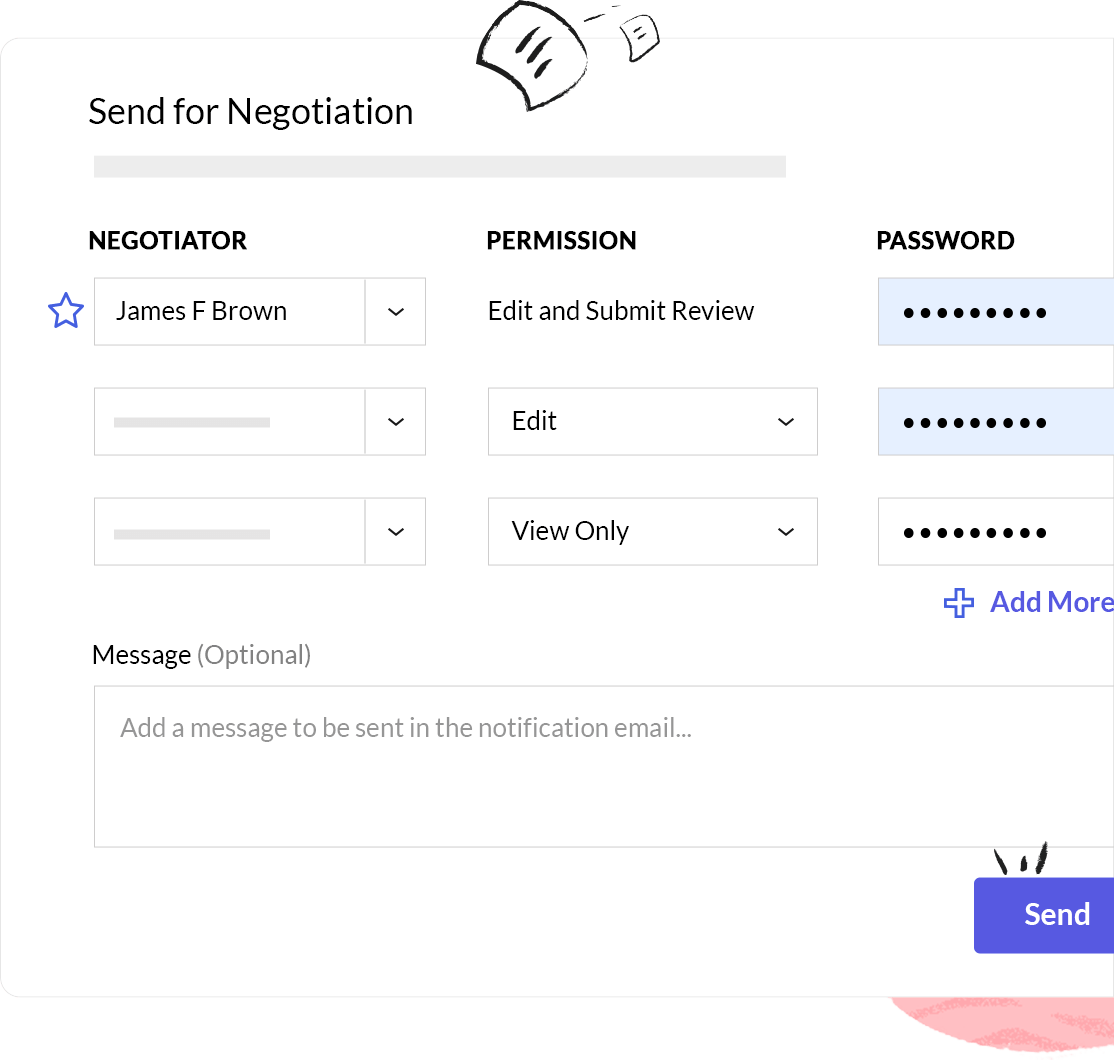
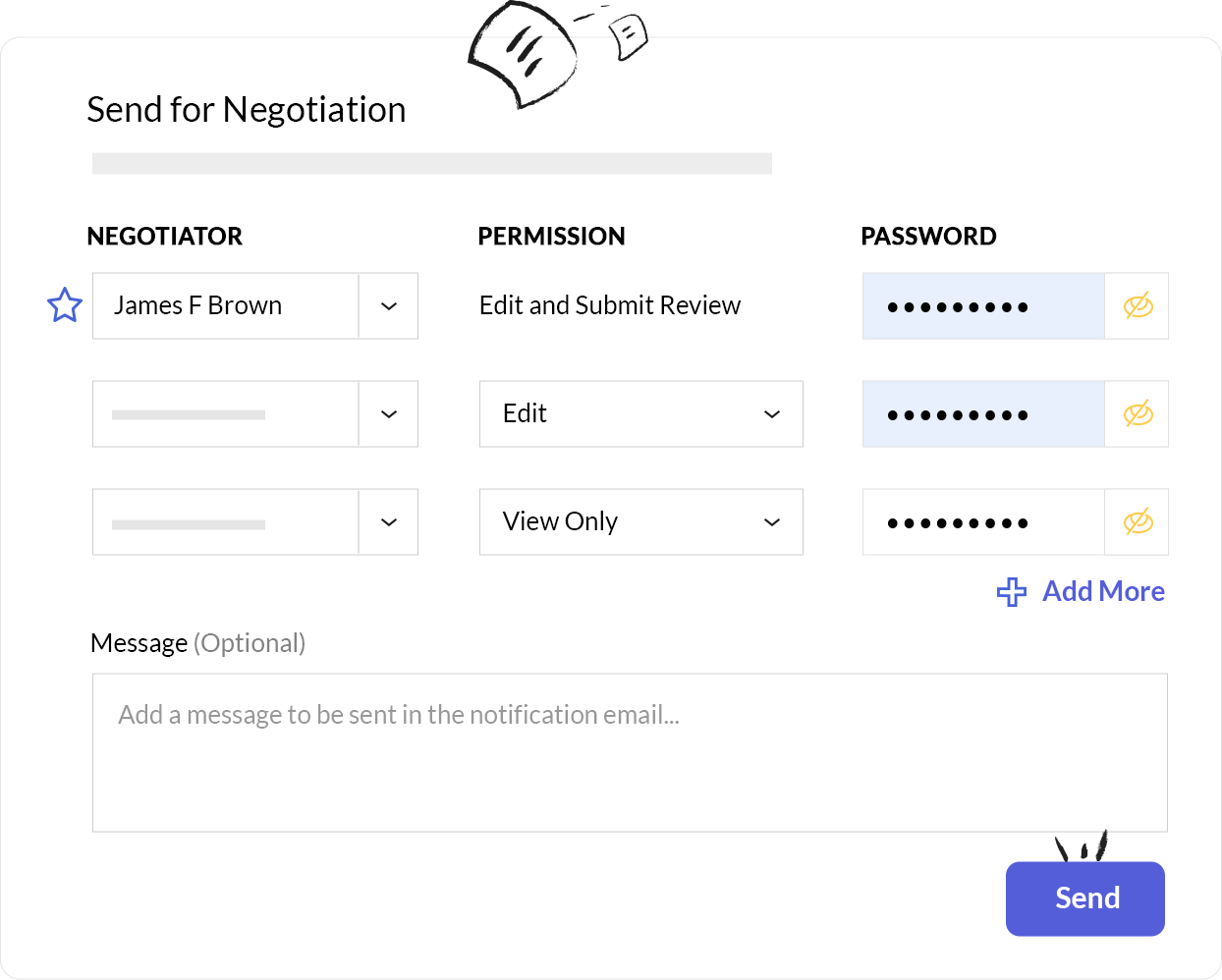
Real-time collaboration
When the contract owner sends the contract for negotiation, the counterparty negotiators will receive the password-protected link via email. The counterparty negotiators do not need a Zoho Contracts account to negotiate and collaborate in real time. The negotiators can suggest changes, add comments, set visibility for them, and view the live cursor of other negotiators with the write-level access permission. Counterparty primary contacts can also request the addition of new reviewers to the negotiation process from within the tool. With automatic redlining, they can also instantly spot changes instead of screening through the whole contract.
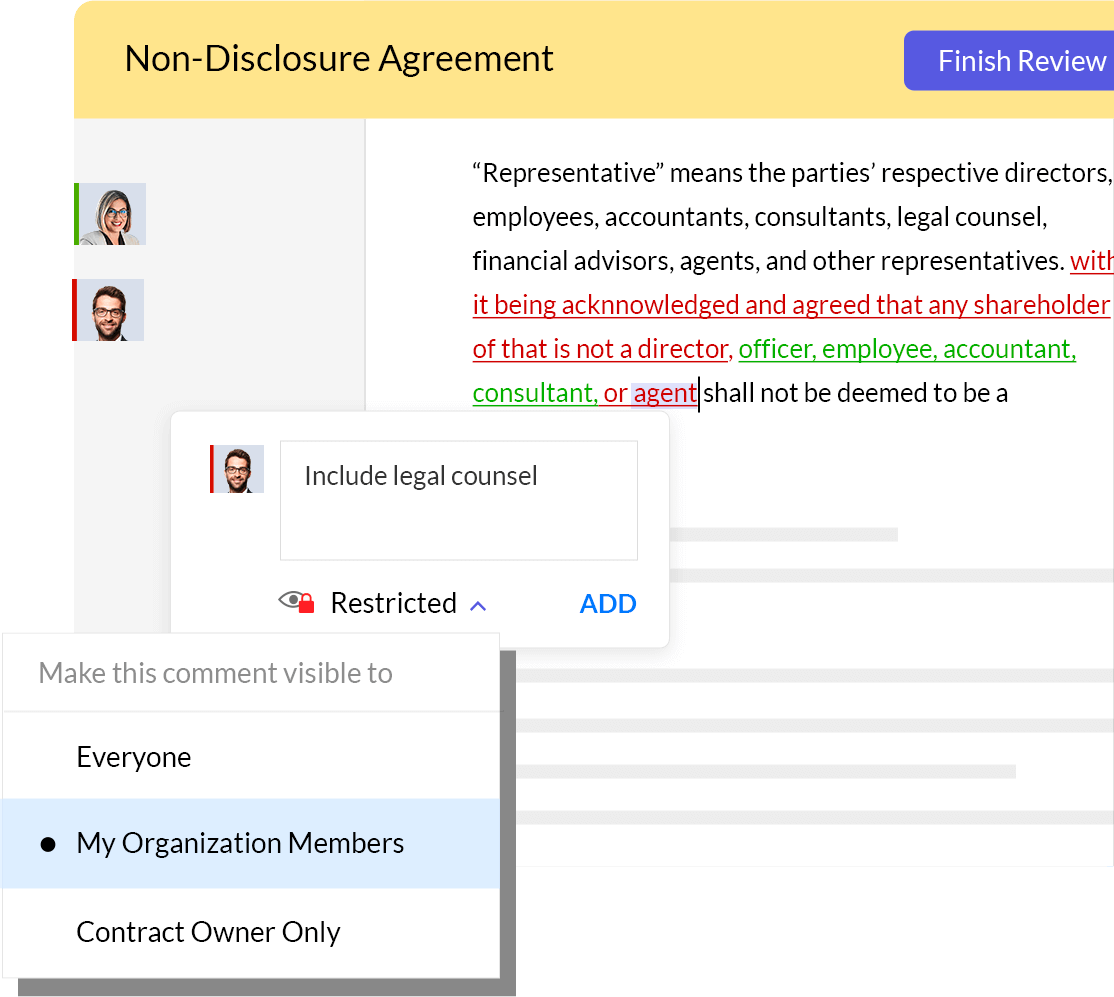
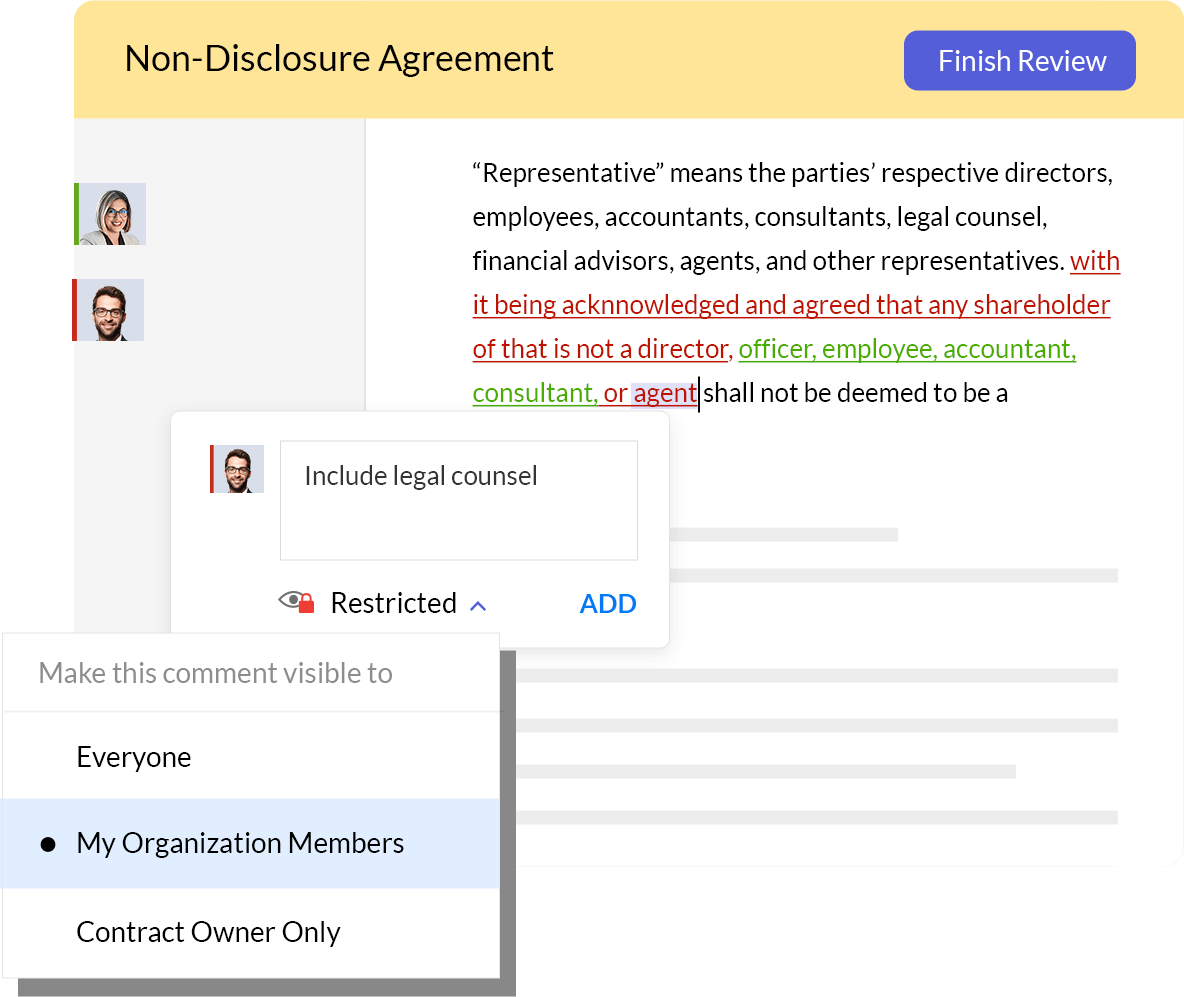
Counterparty-initiated contracts
You can now import and manage contracts initiated by your counterparties directly within Zoho Contracts. Simply mark the "Contract Initiated By" field as "Counterparty" during import. From there, the workflow kicks off from the negotiation stage, allowing you to review, revise, and share updated versions seamlessly. You can store signed agreements, track obligations, and manage post-execution activities for these contracts from within the platform. Our new reports also let you filter and analyze contracts based on the initiating party, giving you better visibility and control.
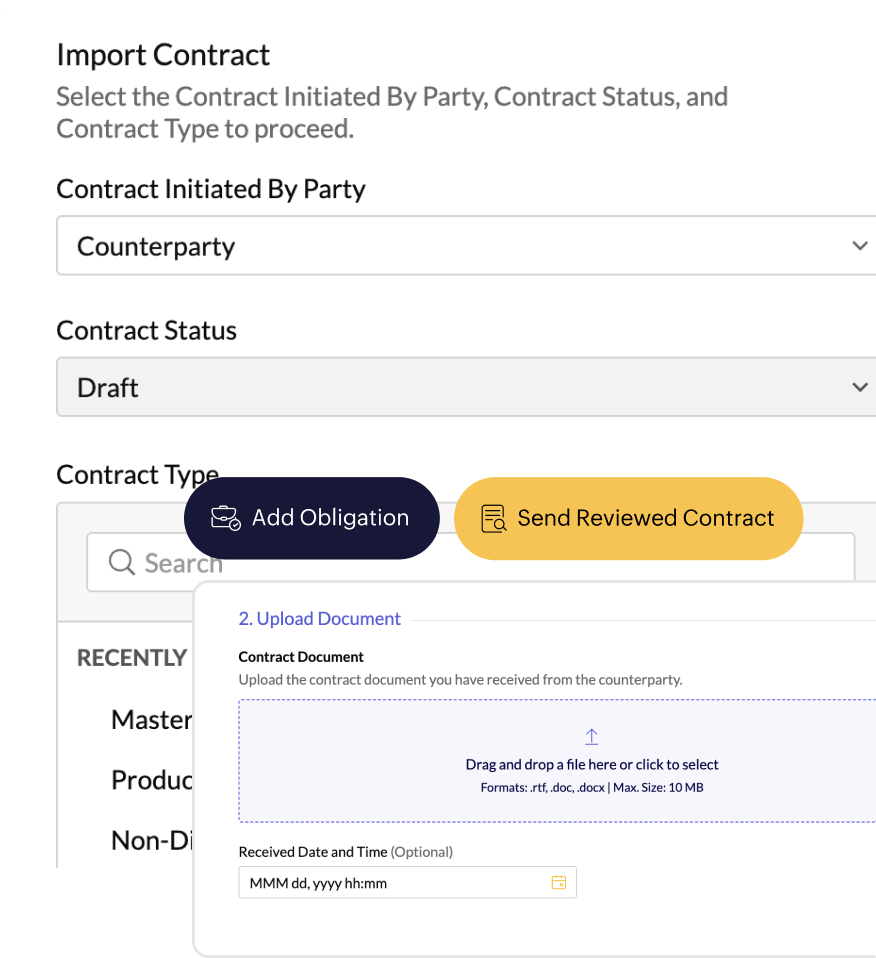
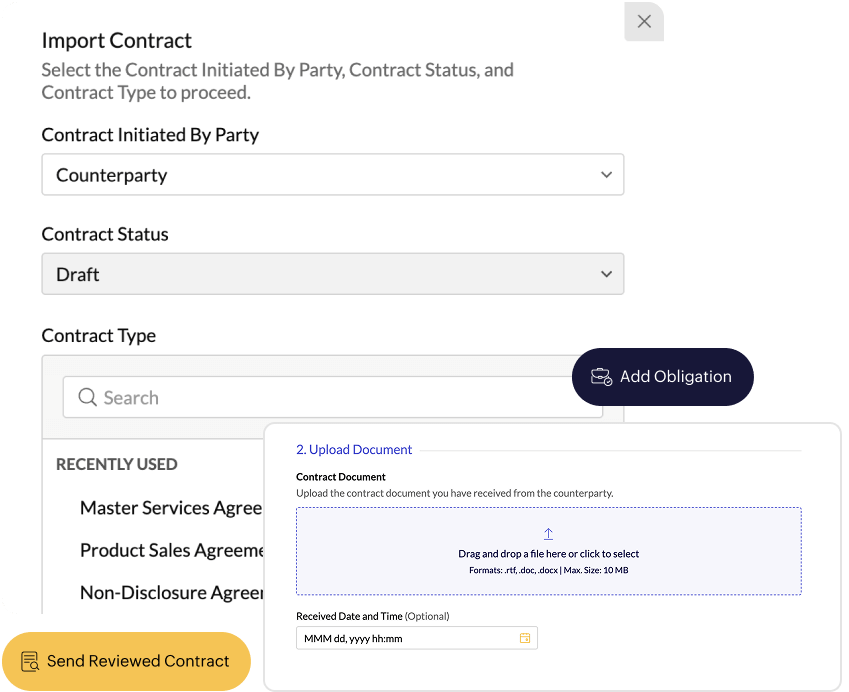
View review status
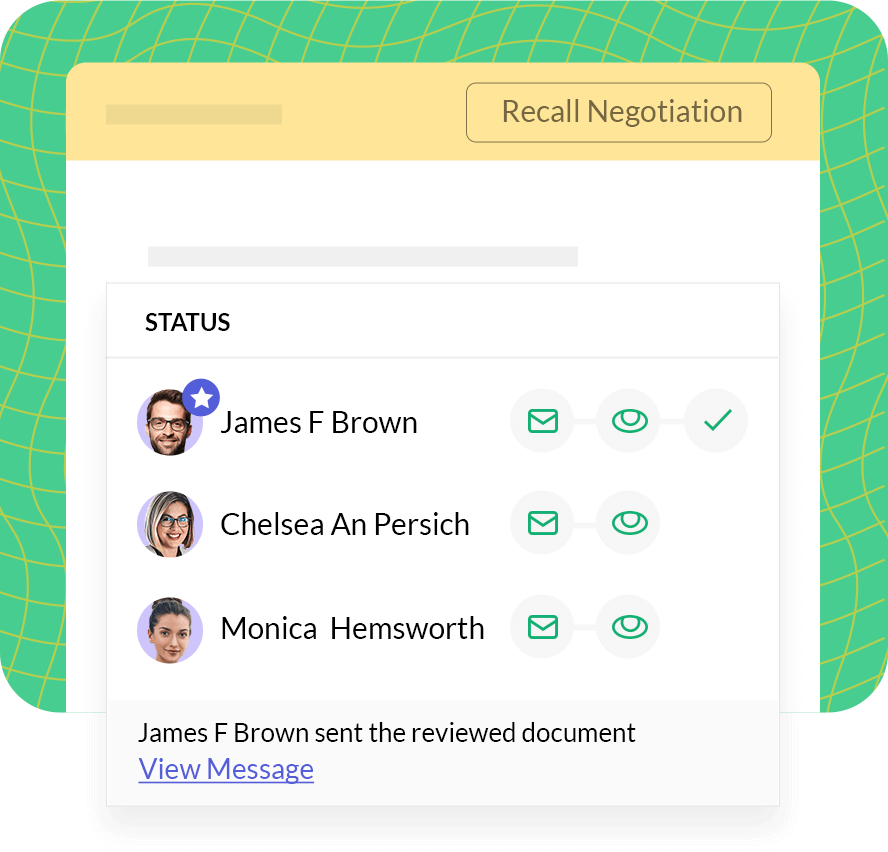
Usually, the contract owner encounters a blank space after sending the contract for counterparty review, as they're unaware of the proceedings within the counterparty organization. The Activity tab in Zoho Contracts informs the owner whether each counterparty negotiator has received the access link, viewed the contract, and submitted the review, depending on their access permission along with the timestamp for each action. This feature promotes better visibility into the progress of the contract negotiation in the counterparty organization, eliminating the need for inquiry emails.
Review summary
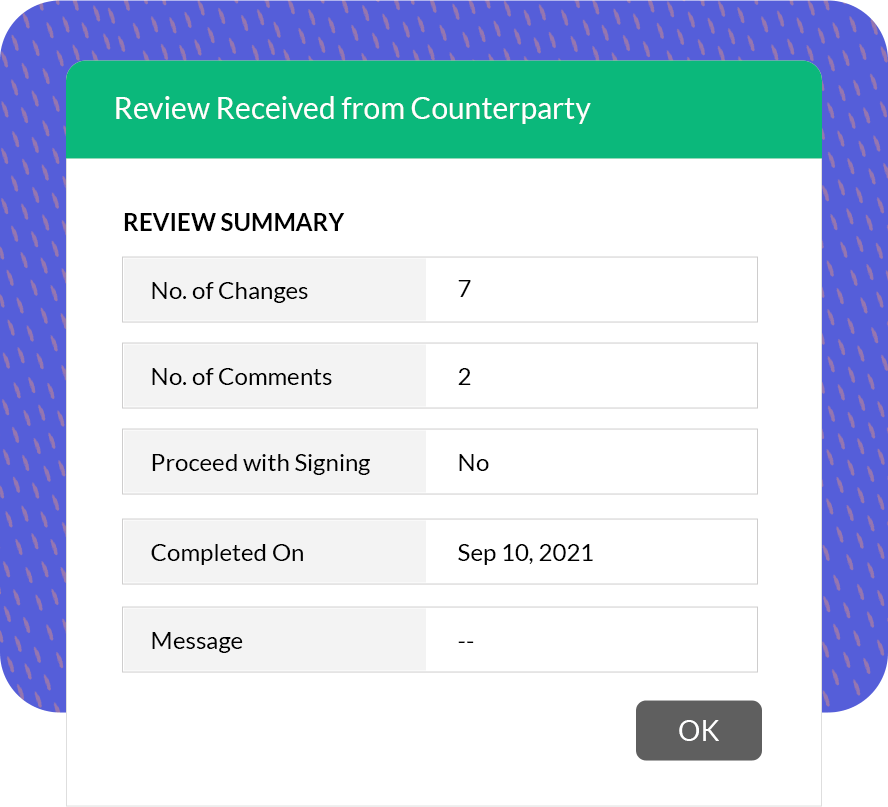
Zoho Contracts generates and displays a Review Summary for the contract owner when the counterparty negotiator submits the contract review. The contract owner gets an overall idea of the review at a glance, without having to scan the entire contract. The contract owner can accept or reject the changes, and resolve and reply to the negotiators' comments. Later, the owner can resend the contract for negotiation or mark it as negotiated and proceed for signature.
Version comparison
Negotiation can be a prolonged process involving multiple back and forths until both parties mutually assent. Zoho Contracts saves every negotiation cycle as a version, and counterparty negotiators can compare any two versions at a time. This feature helps the counterparty negotiators identify all the differences between any two cycles of choice.
Analytical insights
Negotiation-based reports provide special insights for admins by analyzing past negotiations. These insights will help them revisit contract negotiation strategies. There are also general reports that give an overview of the contracts pending execution, enabling better operational efficiency.
History tracking
History tracking enables stakeholders to view and analyze the evolution of the contract document throughout the entire negotiation. When a contract goes through multiple rounds of negotiation, the counterparty negotiators can view the contract document version from any past review cycle. The contract owner can also view the negotiation activity, review summary, and contract document version of the previous negotiation cycles.
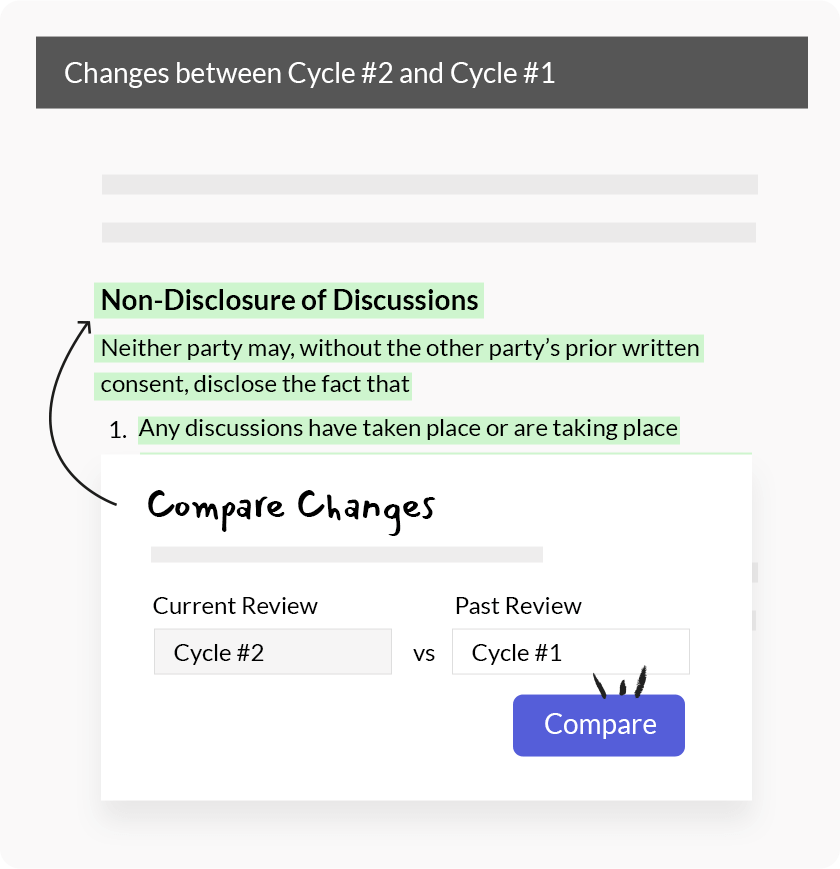
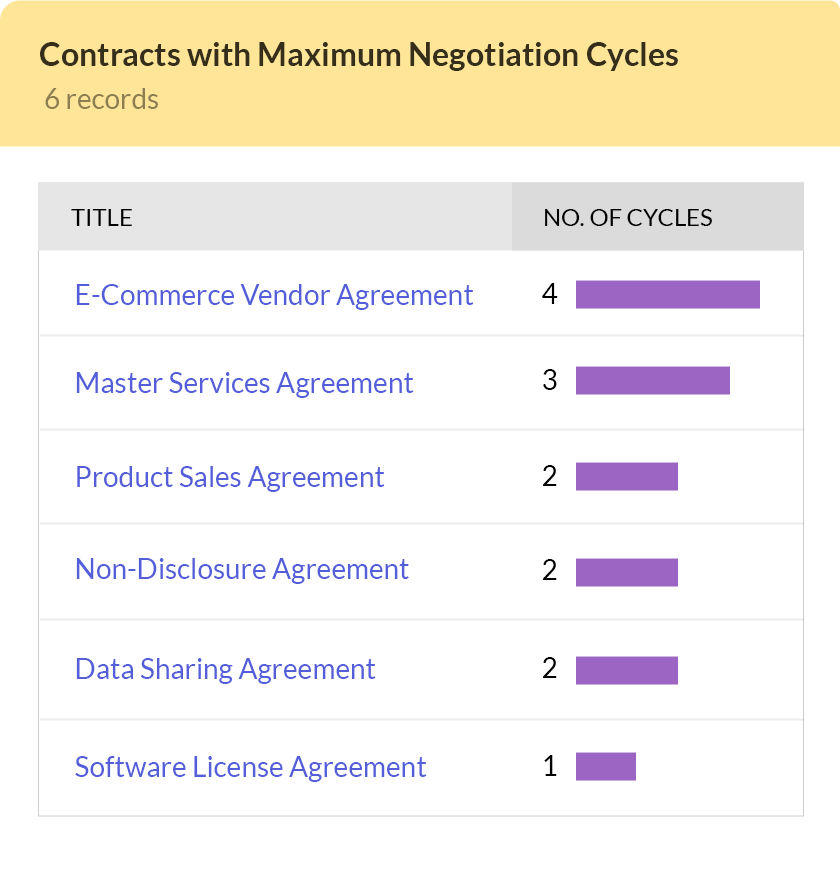
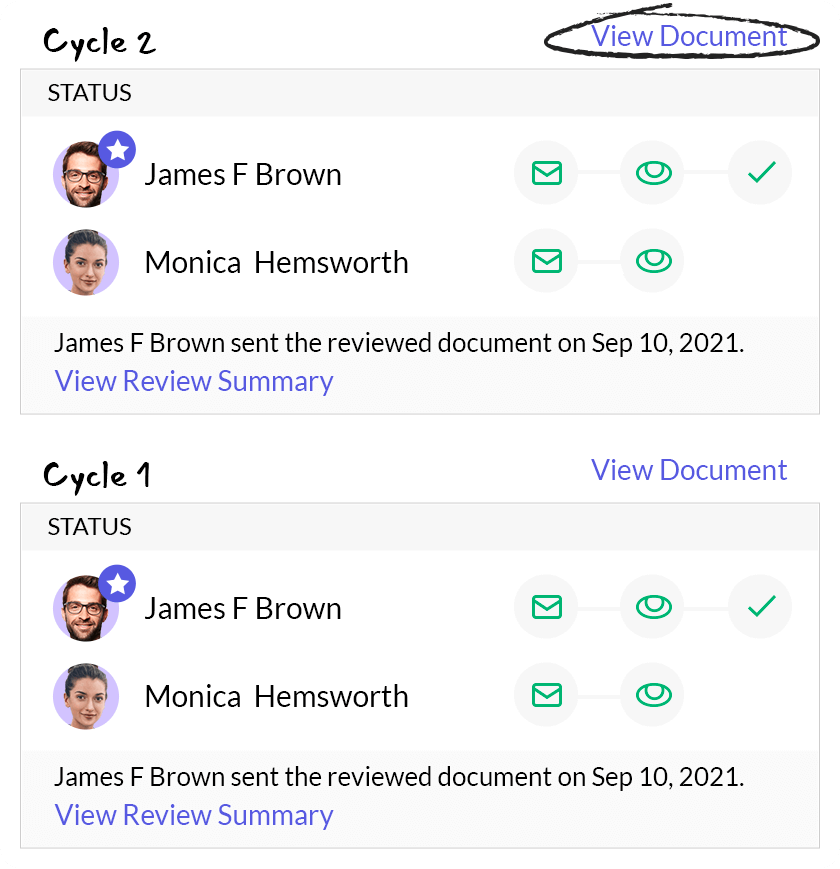
Stay on top of contract negotiation with AI
The AI Assistant in Zoho Contracts simplifies contract negotiation and review. When you receive a contract from your counterparty, the AI Assistant instantly identifies changes, highlights deviations from standard terms, and flags potential risks. This makes reviewing contracts faster, easier, and more secure, ensuring compliance and minimizing risks.
